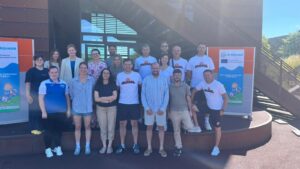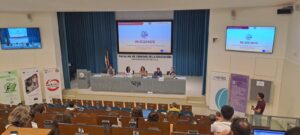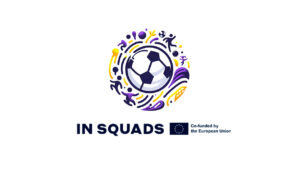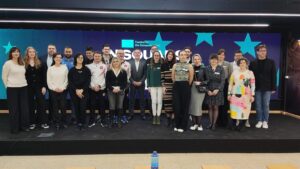SOCIAL INCLUSION THROUGH SPORT
IN SQUADS
This project aims to improve the quality of life of children between the ages of 6 and 12 who are at risk of social exclusion by improving the quantity and quality of their participation in community activities through sports and social training. It seeks to contribute to the social integration of these boys and girls through the practice of soccer, and to their involvement in the communities in which they reside, favoring their social and educational development. We aim to reduce their isolation, improve their level of integration in their natural group, improve their self-esteem and strengthen their personal resources through learning and practicing sports.
For all this, the project offers a training program for coaches and social workers with a socio-sports methodology that will specialize them in the field of integration through sports.
This action will help to improve quality of life of a total of 1250 boys and girls from the four participating countries.
OBJECTIVES
- Promote the inclusion of diversity through the socio-sports methodology.
- Promote all forms of non-discrimination in sport.
- Train coaches and social workers in a socio-sports methodology of Sport for Development that will complement the sports training they already have.
- Generate protected and inclusive play spaces, where children feel safe and can develop their potential.
- Disseminate the results of the pilot and training program for future replicability and exploitation of the results.
NEWS

Fourth transnational meeting of the In-Squads team in Odense, Denmark
Four countries are participating in the In-Squads project: Spain, Poland, Serbia, and Denmark. The objective of this project is to verify a

Fourth transnational meeting of the In-Squads team in Odense, Denmark
Four countries are participating in the In-Squads project: Spain, Poland, Serbia, and Denmark. The objective of this project is to verify a

The partners of the IN-SQUADS project meet at a transnational event in Niš, Serbia
Partner countries of the In-Squads project advance social integration of children through sports On January 21 and 22, 2025, the third working

InSquads participates in the Applied Sports Research Congress.
On October 3rd and 4th, 2024, the XVII International Congress of the Spanish Association for Applied Social Research in Sport (AEISAD) was

July 16, 2024 IN SQUADS 2 nd Project Meeting (online)
On July 16, 2024, a virtual meeting was held with the partners of the In Squads project.Representatives from the four participating countries,

The FFRM leads the “In-Squads” project for people at risk of social exclusion.
The FFRM is leading the In-Squads project approved by the European Union, which is aimed at young people aged 6 to 12
